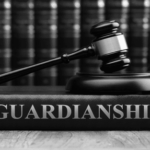Selling your home is a significant decision, and when a spouse is struggling with a mental illness, it adds another layer of complexity. In North Dakota, if you’re in such a situation and need to sell your homestead property, it’s crucial to understand the legal requirements outlined in North Dakota Century Code Section 47-18-22. This law exists to protect both spouses’ interests when selling the property, and this article will provide you with a simplified guide, assuming you may need legal assistance to navigate this process.
Understanding The Essentials
North Dakota Century Code Section 47-18-22 addresses situations where one spouse is mentally ill, and the couple wishes or otherwise needs to sell their homestead property. The statute provides several specific steps and safeguards to ensure the ill spouse’s rights are protected.
Why Not Use A Guardianship Or Conservatorship?
Our office works in many cases where a guardianship or conservatorship is necessary. If you care to learn more about this area of the law, take a look at the following blogs:
- What Happens If I Don’t Have a Health Care Directive
- The Battle Between a Power of Attorney and Guardianship! Which One Is Right For You?
- The Steps of a Guardianship
- Becoming A Certified Guardian Under Rule 59, Starting March 1, 2018
- I Have Been Appointed Guardian, Now What?
- How Can a Guardian Ad Litem Help Me With the Adult Guardianship Process
- Guardianship vs Conservatorship: What You Need and When
- The Rights of a Ward In A Guardianship
- Emergency Guardianships In North Dakota
So the question becomes: why would I utilize this home-sale process instead of a guardianship or conservatorship?
This statute exists for the unique situation where the healthy spouse already has sufficient control of the ill spouse’s care, finances, etc., so the healthy spouse does not need any additional authority. This typically can happen when spouses already share a joint bank account and have 3rd party care already being provided for the ill spouse’s care.
Is This Process Right For Me?
Determining whether this process, a guardianship or conservatorship, or a durable power of attorney is right for you takes examination of heavily factual and legal issues. You should consult with an attorney experienced in these issues in order to make an informed decision.
If you are in need of an attorney to help you navigate through caring for your loved one, please contact us!










